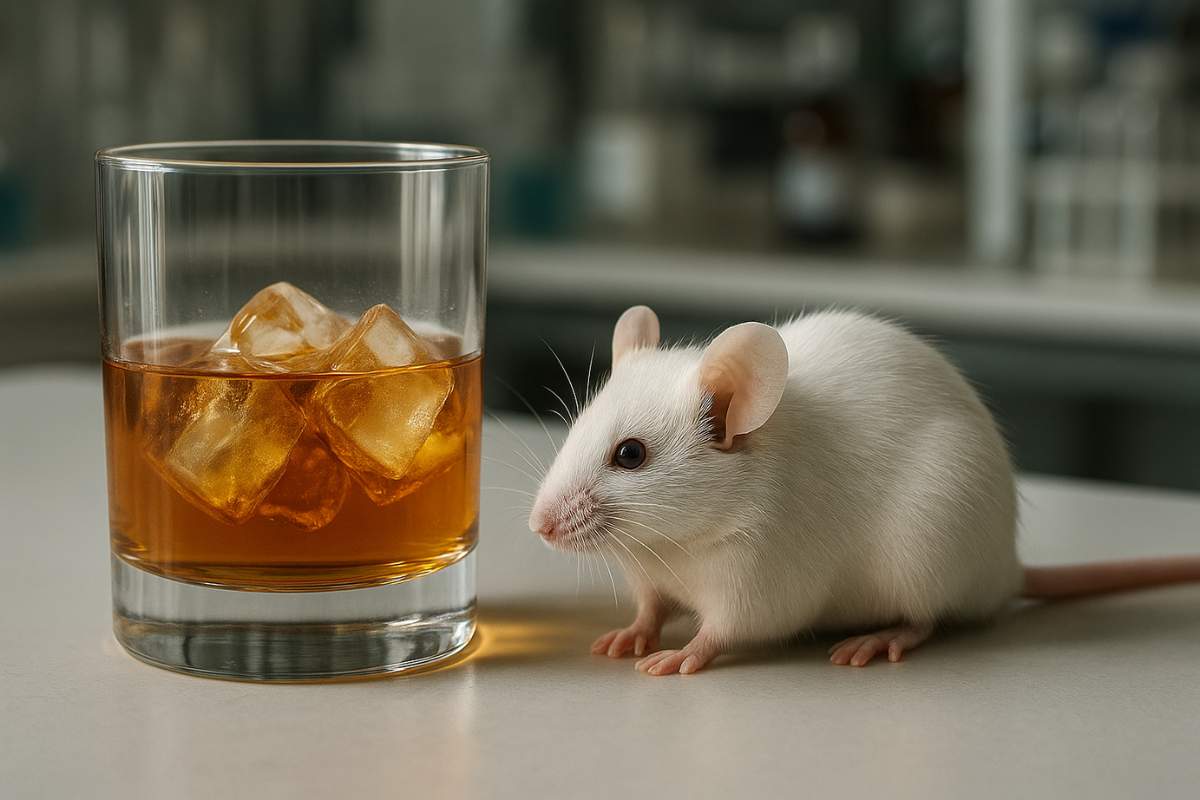A natural liver hormone may provide a new method for getting sober quickly after alcohol poisoning, at least in mice. In a landmark study, researchers found that a hormone known as FGF21, injected into alcohol-intoxicated mice, greatly sped their return to normal from the effects of alcohol. Mice given FGF21 came to and walked normally about two times faster than control mice, exposing a potent inner mechanism that reverses the sedative action of alcohol.
These results indicate a potentially revolutionary treatment for alcohol poisoning, a prevalent and frequently fatal emergency with limited therapeutic options.
What Is FGF21?
Fibroblast Growth Factor 21 (FGF21) is a hormone that is mainly secreted by the liver. It has a critical function in controlling metabolism and energy expenditure, particularly in stressful physiological conditions like fasting, excessive carbohydrate intake, or alcohol exposure.
When the liver breaks down ethanol (alcohol), it signals the release of FGF21 into the circulatory system. The hormone travels to the brain, where it acts on targeted receptors to drive behavior and bodily functions. Earlier studies have determined that FGF21 suppresses sugar and alcohol cravings, increases insulin sensitivity, and guards against alcoholic liver disease.
What is so fascinating about FGF21 is that it can work not only on metabolic pathways, but also on the brain. Its dual functionality encouraged scientists to investigate whether or not the hormone actively accelerated the recovery from alcohol-induced sedation.
How the Study Was Conducted
In the current study, scientists at UT Southwestern Medical Center employed mouse models to mimic the effects of alcohol intoxication and treatment.
Mice were given a high dose of ethanol, equivalent to a human binge, that resulted in total loss of consciousness. The researchers then took a measurement of how long it took each mouse to regain the “righting reflex,” or the capacity to roll back onto its feet, a common test for measuring consciousness in animal research.
Some mice were genetically modified to lack FGF21, and some were intact. After causing intoxication, half of the mice received a pharmacological dose of FGF21, and the others a saline placebo.
The researchers also administered lower amounts of alcohol that resulted in impaired coordination but not unconsciousness. In those experiments, they assessed the time to recovery of balance and motor function.
The Results: Speedier Wake-Up and Recovery
The outcome was startling:
- FGF21-deficient mice recovered much more slowly from alcohol exposure compared to normal mice.
- Mice that were injected with an FGF21 recovered twice as quickly as the control group. Those who normally would have taken about three hours to wake and move regained reflexes in approximately 90 minutes.
- Balance and coordination returned faster in the FGF21-treated mice in the lower-dose alcohol tests.
- Notably, FGF21 did not influence the metabolism rate of alcohol. The blood alcohol concentrations were equal in the treated and the untreated groups, eliminating faster detoxification as the cause for accelerated recovery.
The researchers also experimented with whether FGF21 would have the same effect on other sedatives, such as ketamine or benzodiazepines, and it didn’t. The hangover-like effect was alcohol-specific, suggesting that the hormone and brain alcohol response system interacted with specificity.
The Brain Mechanism Behind the Effect
Further research indicated that FGF21 acts on an area of the brain known as the locus coeruleus, a region responsible for regulating wakefulness and alertness. The area has noradrenergic neurons, nerves that make norepinephrine, a chemical that is responsible for boosting arousal in the brain.
The hormone stimulated these neurons directly, increasing their activity and inducing a condition of alertness despite alcohol consumption. This implies that FGF21 facilitates the brain in overcoming the sedative action of alcohol so that the subject can wake up and recover motor functions without eliminating the alcohol itself.
It has been suggested that this is an evolved survival response; animals able to recover speedily from ingestion of fermented fruit (and the natural alcohol therein) would have a survival advantage in terms of evading predators.
Why It Matters
Alcohol poisoning accounts for hundreds of thousands of visits to the emergency room each year, and, in extreme situations, can kill. In contrast to its wide use, to date, no FDA-approved drug exists that has been specifically tailored to treat alcohol overdose.
The finding that FGF21 reduces intoxication time by a great deal may portend a whole new class of treatment. Researchers see a day when emergency treatment for acute alcohol poisoning might work like naloxone (Narcan) for opioid overdose, where FGF21 or a related substance might be injected to bring a person back to life.
What makes the concept even more hopeful is that FGF21 analogs are currently in clinical trials for metabolic diseases such as obesity and type 2 diabetes with a favorable safety profile. This sets the stage to investigate its potential for alcohol intoxication.
Limitations and Future Directions
Although the results are encouraging, there are some significant caveats:
- The study was done in mice, and human biology is more complicated. It’s not certain whether FGF21 would work as well in humans.
- The best dose and timing in humans are also unknown. Additional studies need to figure out how to provide the hormone in actual emergency scenarios.
- FGF21 does not remove alcohol from the system, so although it may assist with alertness and mobility, it does not decrease blood alcohol levels.
Nonetheless, the study offers compelling evidence that the liver-brain connection plays a much more active role in regulating our response to alcohol than previously thought.
Conclusion
This research highlights a fascinating biological feedback loop in which the liver not only processes alcohol but also signals the brain to recover from its effects. The hormone FGF21 acts as a natural anti-intoxicant, offering a potential new tool in the fight against alcohol poisoning.
Although additional work is required to bring these results into human therapies, the finding adds a potent new chapter to our knowledge of how the body protects itself against alcohol, and potentially could lead to life-saving interventions.























Really a good discovery, if it can be used on humans, it will be useful in several scenarios.
Yes
That is an interesting study
It will be useful if it can be used in humans
Yes